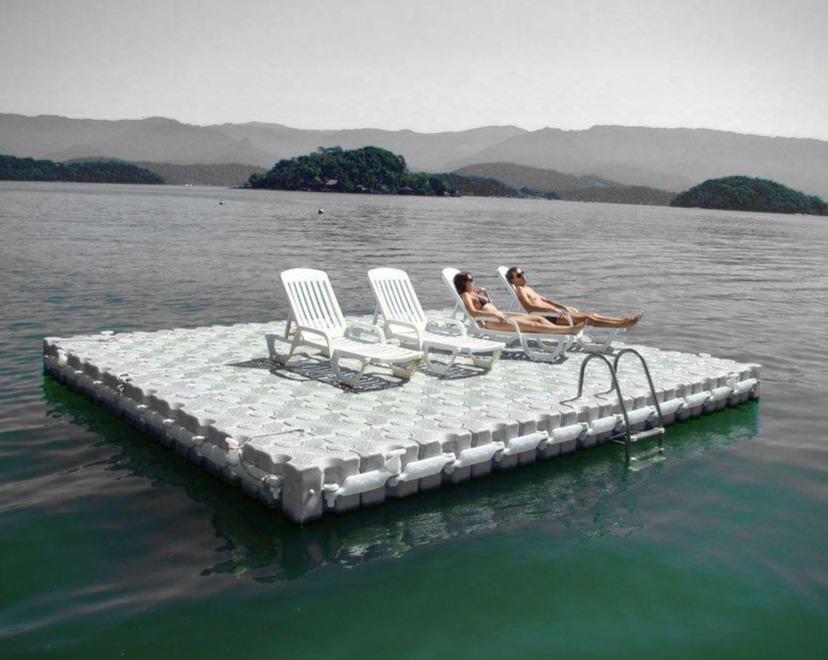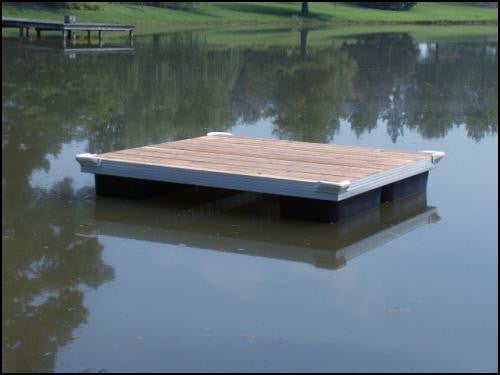Improve Your Water Experience with Custom Floating Docks Designed for Your Way of living
Improve Your Water Experience with Custom Floating Docks Designed for Your Way of living
Blog Article
The Ultimate Guide to Picking the Ideal Floating Docks
Choosing the suitable floating dock requires an extensive understanding of different components that affect both performance and longevity. Elements such as dock kinds, products, and essential features substantially influence your decision-making procedure.
Recognizing Floating Dock Kind
When picking a floating dock, it is vital to comprehend the numerous kinds readily available, as each offers distinctive objectives and applications. Floating docks mainly fall into three classifications: modular, fixed, and pontoon docks.
Modular docks are made up of specific areas that can be conveniently constructed or reconfigured, making them ideal for changing water levels and diverse uses, such as recreational activities or commercial operations. Their adaptability enables modification based on particular needs.

Pontoon docks are identified by their buoyant framework, frequently made up of multiple pontoons that supply security and support. They are specifically well-suited for larger vessels and are generally utilized in marinas or for beachfront residential properties. Understanding these types help in selecting the most ideal floating dock to satisfy certain needs, guaranteeing optimum capability and safety and security.
Key Products for Durability
Choosing the ideal products for floating docks significantly effects their longevity and longevity. The most typical materials consist of timber, plastic, steel, and composite products, each offering distinct advantages and restrictions.
Wood, usually preferred for its aesthetic appeal, requires routine maintenance to stand up to dampness and degeneration. Pressure-treated lumber can boost resistance to rot, yet it might still be vulnerable to pests and weathering.

Plastic docks, constructed from high-density polyethylene (HDPE), are immune to corrosion, UV radiation, and influence, making them a preferred option for seaside atmospheres. Their lightweight nature also promotes simple installation and moving.
Metal docks, usually constructed from light weight aluminum or galvanized steel, offer remarkable toughness and toughness. They are resistant to deterioration, particularly when treated, yet may call for extra insulation to stop heat build-up in warm climates.
Composite products, integrating timber fibers and plastics, provide the benefits of both timber and plastic, resisting dampness and fading while needing marginal maintenance. - floating dock builder
Eventually, the selection of materials must align with environmental problems, intended use, and upkeep choices to ensure the floating dock continues to be functional and visually pleasing with time.
Important Functions to Take Into Consideration
While the choice of materials is critical, considering necessary features for floating docks is similarly vital to ensure optimal efficiency and customer fulfillment. One essential function to evaluate is the dock's buoyancy capacity, which determines just how much weight it can support without immersing. floating docks. This is essential for suiting boats, personal boat, and even leisure activities
Furthermore, transportability is a substantial factor to consider. Relying on your demands, you might desire a dock that is simple to dismantle and move, particularly if you plan to relocate it seasonally. Security is an additional essential feature; a properly designed floating dock needs to decrease activity brought on by wind and water currents, giving a safe and secure system for customers.
Security functions, such as non-slip surfaces and rounded edges, are also critical to avoid accidents, specifically in damp conditions. Additionally, consider the schedule of devices, such as bumpers, cleats, check that and ladders, which can improve the performance of your dock.
Installment and Upkeep Tips
Establishing up and preserving a drifting dock needs careful preparation and attention to detail to guarantee its longevity and optimum performance. Begin by picking a suitable location that lessens exposure to solid currents and waves, which can cause deterioration. Ensure that the water deepness suffices for the dock's height which it is secured securely to protect against motion.
Throughout installation, comply with the manufacturer's standards very closely, as incorrect setting up can jeopardize stability. Use high-quality materials resistant to rust, such as aluminum or treated wood, to improve longevity. Consistently check all elements, consisting of drifts, connectors, and securing systems, for indications of damages or wear.
If your dock utilizes flotation protection gadgets, guarantee they continue to be undamaged and free from leaks. By sticking to these installation and maintenance tips, you can take pleasure in a useful and reliable floating dock for years to come.
Budgeting for Your Dock
Budgeting for your dock is an important step that can dramatically influence your overall complete satisfaction and investment in a beachfront residential or commercial property. Developing a clear spending plan assists you browse the various options available and ensures you make informed decisions that straighten with your monetary abilities.
Begin by figuring out the dimension and layout of the dock you call for, as these variables will considerably influence the price. Floating docks can vary considerably in price, relying on materials, buoyancy, and attributes like devices and ramps. Research study different makers and providers to contrast prices and recognize the market worth.
In addition to first expenses, take into consideration continuous expenses such as upkeep, insurance, and prospective repair work. Assign funds for these recurring expenses to stay clear of surprises down the line. It's additionally prudent to budget plan for any kind of required page authorizations or inspections, which might be called for by local guidelines.
Lastly, remember the possible roi. A well-planned dock can improve your residential or commercial property's worth and appeal, offering a favorable economic influence in the long term. By budgeting successfully, you can make certain that your dock meets your requirements without jeopardizing your monetary stability.
Final Thought
In final thought, selecting the excellent floating dock necessitates a comprehensive evaluation of numerous elements, including dock kinds, materials, essential attributes, and installment procedures. Careful factor to consider of financial constraints will certainly even more guarantee an audio financial investment.

While the selection of materials is vital, considering crucial functions for floating docks is equally crucial to make certain optimal efficiency and user complete satisfaction.Establishing up and maintaining a drifting dock calls for careful planning and interest to information to ensure its durability and optimum performance. Floating docks can vary substantially in rate, depending on materials, buoyancy, and visite site features like ramps and devices.In verdict, selecting the suitable floating dock necessitates a complete analysis of various factors, including dock types, materials, vital functions, and setup procedures.
Report this page